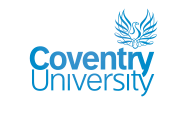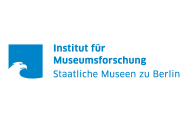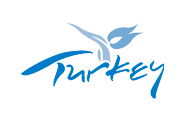

This project has received funding from the European Union’s Seventh Framework Programme for research, technological development and demonstration under grant agreement no 612789

FIRST NETWORKING SESSION
A Networking Session for EC projects was organised by RICHES in the framework of the First Policy Seminar in Brussels, on 19 October 2015. Participants in 13 EC-funded projects discussed aims and achievements in the light of establishing new, profitable collaborations and synergies. Scope of the meeting was:
![]() To reflect on the impact that cultural heritage projects are delivering, in order to identify opportunities to improve the effectiveness of their results.
To reflect on the impact that cultural heritage projects are delivering, in order to identify opportunities to improve the effectiveness of their results.
![]() To share knowledge about targeted communities, in order to discover similarities in approaches, gaps and omissions to be served jointly, framework conditions that help to determine the success or otherwise of project outcomes.
To share knowledge about targeted communities, in order to discover similarities in approaches, gaps and omissions to be served jointly, framework conditions that help to determine the success or otherwise of project outcomes.
![]() To identify synergies and the potential for collaboration among projects.
To identify synergies and the potential for collaboration among projects.
Download here the programme of the Networking Session.
Below is a description of the projects that participated in the Networking Session, together with the presentation that they delivered.
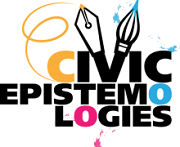 Civic Epistemologies – Development of a Roadmap for Citizen Researchers in the Digital Culture
Civic Epistemologies – Development of a Roadmap for Citizen Researchers in the Digital Culture
The CIVIC EPISTEMOLOGIES project is about the participation of citizens in research on cultural heritage and humanities. ICT are powerful drivers of creativity, but specific technical know-how is still generally lacking in the creative industries sectors. In addition, humanities scholarship is not yet taking full advantage of ICT to engage with wider audiences. New skills are needed to enable the cultural sector to grasp employment and commercial opportunities. The project aims to develop and validate a Roadmap for the use of e-Infrastructures to support the participation of European citizens in research on cultural heritage and digital humanities. Critically, the Roadmap will offer support for improved social cohesion arising from the sharing of knowledge and understanding of Europe’s citizens common and individual cultures.
Web: http://www.civic-epistemologies.eu/
Presentation: download PDF
 Cre8TV – Creativity for Innovation & Growth in Europe
Cre8TV – Creativity for Innovation & Growth in Europe
Cre8tv.eu is a research project running from February 2013 to January 2016 and supported by a grant of the 7th Framework Programme of the European Commission (Socio-economic Sciences and Humanities). The Cre8tv.eu is a multi-partner and multi-disciplinary project which will examine and unveil the significance of creativity and cultural and creative industries in Europe (and beyond), and their role in innovation and economic growth in Europe.
Presentation: download PDF
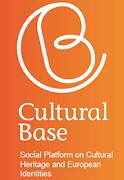 CulturalBase – Social Platform on Cultural Heritage and European Identities
CulturalBase – Social Platform on Cultural Heritage and European Identities
Cultural Base is a social platform funded by the European Commission's Horizon 2020 Framework Programme 2014-2015 “Europe in a changing world: inclusive, innovative and reflective societies”. Cultural Base aims to address the topic of Heritage and European Identities from a double standpoint, namely, an analytical as well as a public policy perspective. It all began with the idea that since the second half of the last century, culture has experienced a profound mutation, through which its position and role in the social dynamics have been transformed. Culture now constitutes an essential basis of today’s society in a context of cultural digitization and globalization. The transformation of the entire cultural ecosystem has radically altered - and at the same time, intensified - the relationship between cultural identity, cultural heritage and cultural expression. This transformation has occurred both at the level of the professional cultural sector as well as in society as a whole. As a Social Platform, Cultural Base aims at exploring the new challenges and the new potential of culture, where three pillars - cultural identity, cultural heritage and cultural expression – intertwine combining the knowledge stemming from academic and non-academic worlds. The work of the Cultural Base platform will be conducted along three main axes: 1) Cultural memory, 2) Cultural inclusion, and 3) Cultural creativity.
Web: http://www.culturalbase.eu/
Presentation: download PDF
 Cultural Heritage Counts for Europe
Cultural Heritage Counts for Europe
The project gathered, analysed, consolidated and widely disseminated the existing data on the impact of cultural heritage on the economy, society, culture and the environment in order to produce a mapping of the evidence‐based research that has already been carried out at the European, national, regional, local and/or sectoral levels and to present policy recommendations for tapping into the full potential of heritage.
Web: http://www.encatc.org/culturalheritagecountsforeurope/
Presentation: download PDF
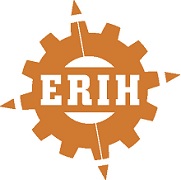 ERIH – European Route of Industrial Heritage
ERIH – European Route of Industrial Heritage
ERIH is the European industrial heritage tourism information network. Currently it presents about 1,200 sites in 43 European countries. Among these sites there are more than 80 Anchor Points which build the virtual ERIH main route. On eighteen Regional Routes it is possible to discover the industrial history of these landscapes in detail. All sites relate to thirteen European Theme Routes which show the diversity of European industrial history and their common roots.
Web: http://www.erih.net/
Presentation: download PDF
 GRAVITATE – Geometric Reconstruction And noVel semantIc reunificaTion of culturAl heriTage objEcts
GRAVITATE – Geometric Reconstruction And noVel semantIc reunificaTion of culturAl heriTage objEcts
The consortium will create software tools for reconstructing fragmented archaeological artefacts. The main case-study is fragments of monumental terracotta statues from Salamis, Cyprus, dating to around 650 – 600 B.C.E., dispersed in museums in Cyprus, the UK, France and Australia. The 3D captured data and related metadata encoded in an ontology will be fused and analysed by integrating surface and 3D matching with semantic and natural language processing techniques. The project started in Jun-15 and runs till May-18. It is led by IT Innovation, has end-user partners British Museum and Cyprus Institute and technical partners CNR, UVA and Technion.
Web: http://gravitate-project.eu/
Presentation: download PDF
 HERA – Humanities in the European Research Area
HERA – Humanities in the European Research Area
HERA is a consortium of 24 European Humanities Research Councils across Europe and the European Commission, with the objective of firmly establishing the humanities in the European Research Area and in the European Commission Framework Programmes. Since 2009 it has funded 37 multi-national projects in areas including cultural heritage, with 35m euro total. 20+ new projects to begin 2016 (21 m euro total).
Web: http://heranet.info/
Presentation: download PDF
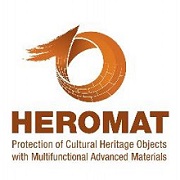 HEROMAT - Protection of Cultural Heritage objects with multifunctional advanced materials
HEROMAT - Protection of Cultural Heritage objects with multifunctional advanced materials
The FP7 multidisciplinary research cooperation project HEROMAT was directed towards the development of innovative environmental friendly materials with value added functions aimed to the protection of immovable Cultural Heritage assets. It contributed to an effective, long-lasting solutions for the prevention of degradation, keeping the authenticity, functionality and the aesthetic appearance of the cultural assets and having socio-economic benefits. The Pan-European HEROMAT team from Serbia, Slovenia, Italy, UK and Russia, focused on the restoration and consolidation of two case study historical objects located in urban (Bač fortress, Serbia) and rural (Manor in Dornava, Slovenia) environment, both having continental climate. The HEROMAT project investigation involved the chain of activities from the synthesis, establishment of the methodology for characterization and testing of novel protective materials through their pilot production and, finally, to the in situ application and monitoring, giving also their life cycle assessment. The output of HEROMAT is a set of novel materials applicable for the protection of different inorganic mineral substrates providing multiple added functions: consolidation, self-cleaning and anti-microbial effect.
Presentation: download PDF
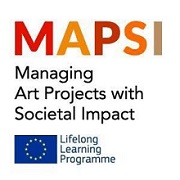 MAPSI – Managing Art Projects with Societal Impact
MAPSI – Managing Art Projects with Societal Impact
MAPSI is a LLP Erasmus Multilateral Project which refers to a specialization in management of artistic projects with societal impact, and aims to create an international network focusing on educating cultural managers and facilitators to manage and mediate artistic and cultural projects with societal impact. It will integrate the transnational and interdisciplinary fields of art, management and societal impact by developing a novel understanding on the interaction between art and society and increasing the skills and competences of future cultural managers to foster the valuable interface.
Web: http://www.mapsi.eu/
Presentation: download PDF
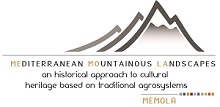 MEMOLA – MEditerranean MOntainous LAndscapes: an historical approach to cultural heritage based on traditional agrosystems
MEMOLA – MEditerranean MOntainous LAndscapes: an historical approach to cultural heritage based on traditional agrosystems
The project is an interdisciplinary approach to cultural landscapes of Mediterranean mountainous areas, taking as a central axis the historical study of two natural resources essential to generate agro-systems: water and soil. The study focuses on four areas: Sierra Nevada (Spain), Monti di Trapani (Italy), Colli Euganei (Italy) and Vjosa Valley(Albania). Its main objectives are to investigate the logic that rules the process of historical landscapes formation in relation to natural resources within a diachronic framework, and to introduce the historical perspective (4th dimension) as a powerful interpretation key in landscape studies.
Web: http://www.memolaproject.eu/
Presentation: download PDF
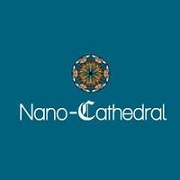 Nano-Cathedral – Nanomaterials for conservation of European architectural heritage developed by research on characteristic lithotypes
Nano-Cathedral – Nanomaterials for conservation of European architectural heritage developed by research on characteristic lithotypes
The objective of Nano-Cathedral is to provide “key tools” for restoration and conservation. Five different cathedrals were selected as they may be considered as representative of both different exposure conditions and different types of stones. A general protocol will be defined for the identification of the petrographic and mineralogical features of the stone materials, the identification of the degradation patterns, the evaluation of the causes and mechanisms of alteration and degradation, including the correlations between the relevant state of decay and the actual microclimatic and air pollution conditions.
Web: http://www.nanocathedral.eu/
Presentation: download PDF
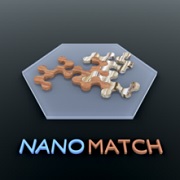 NanomatCH – Nano-systems for the conservation of immoveable and moveable polymaterial Cultural Heritage in a changing environment
NanomatCH – Nano-systems for the conservation of immoveable and moveable polymaterial Cultural Heritage in a changing environment
NANOMATCH is based on the development of two metal-alkoxide consolidants: calcium based as strengthener for stone and as alkaline supply for wood, and aluminium based as consolidant for glass. The challenge is to produce new, advanced, compatible and sustainable nano-structured materials, tailored to the conservation needs of the different substrates, in particular porous calcareous stones, wood deteriorated by acidic conditions, micro-fractured stained glass. The idea behind NANOMATCH is to refresh the conventional conservation market. These products will be cost-effective and simple to apply. They mark a new generation of restoring and protecting products, compatible with the original materials, applicable to indoor and outdoor Cultural Heritage. This will improve measures for the protection of Europe’s valuable heritage.
Web: http://www.nanomatch-project.eu/
Presentation: download PDF
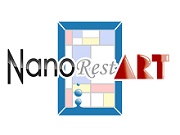 NANORESTART – NANOmaterials for the REStoration of works of ART
NANORESTART – NANOmaterials for the REStoration of works of ART
The NANORESTART project focuses on the synthesis of novel poly-functional nanomaterials and on the development of highly innovative restoration techniques to address the conservation of a wide variety of materials mainly used by modern and contemporary artists. In NANORESTART, enterprises and academic centers of excellence in the field of synthesis and characterization of nano- and advanced materials have joined forces with complementary conservation institutions and freelance restorers. This multidisciplinary approach will cover the development of different materials in response to real conservation needs, the testing of such materials, the assessment of their environmental impact, and their industrial scalability.
Web: http://www.nanorestart.eu/
Presentation: download PDF
Official Media Partner: Digital Meets Culture.
Designed and powered by: Promoter SRL.
